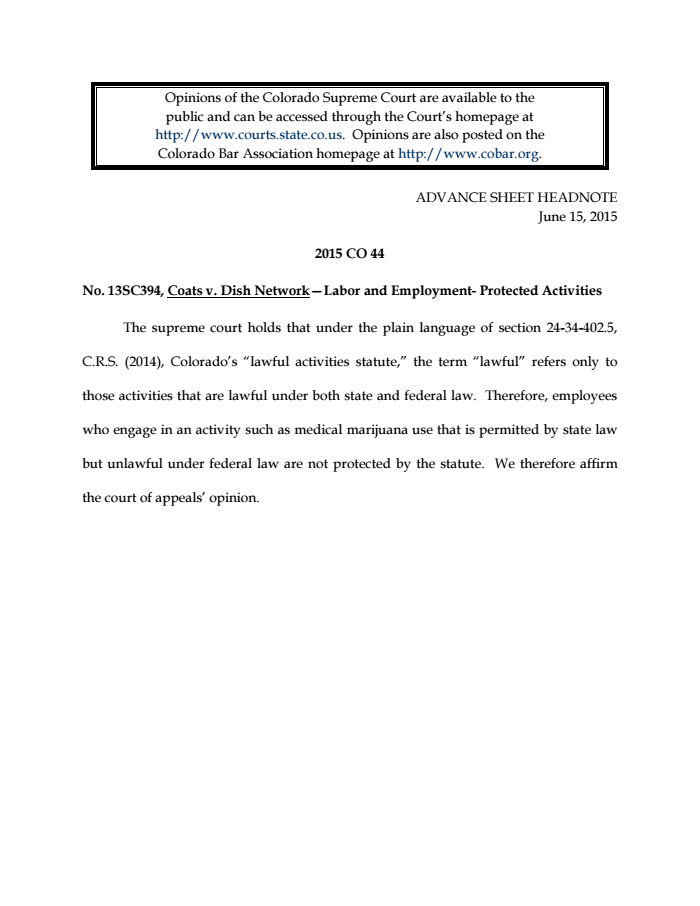
In a decision that underscored the schism between federal and state drug policies, the Colorado Supreme Court ruled Monday that employers can fire workers for using marijuana during off-work hours – for medical or recreational reasons – despite such activity being legal under state law.
Brandon Coats, a man with quadriplegia who worked in a Dish Network customer call center, was fired in 2010 after failing a random drug test. He sued his former employer, alleging he was unfairly dismissed because his medical marijuana use constituted a lawful activity under state law.
However, in a 6-0 decision, the Supreme Court affirmed two lower court rulings that "lawful" behavior under state employment laws only includes activities that are also legal under federal law. Despite Colorado legalizing marijuana for medical use in 2000, and recreational use in 2012, federal law continues to prohibit the drug.
"The term 'lawful' as it is used in [the Colorado lawful activities statute] is not restricted in any way, and we decline to engraft a state law limitation onto the term," Justice Allison H. Eid wrote, delivering the opinion of the court. "Therefore, an activity such as medical marijuana use that is unlawful under federal law is not a 'lawful' activity under [the statute]."

Although the case, Coats v. Dish Network, concerned only the use of medical marijuana, the ruling will also impact Colorado workers who legally use recreational marijuana during off-work hours.
Coats' attorney, Michael D. Evans, said it was a "tough decision."
"Although naturally devastating for us, the silver lining of this case, and why it was so important to be litigated by Mr. Coats ... for over 5 years against such an ominous opponent, is that there was previously no clear definition on what an employer and employee could do when it came to [medical marijuana]," Evans' firm said in a statement on Facebook. "It was a very scary 'gray' area for both sides. All of that hard work and risk put into this case was not a waste, because at least now there is clear communication for everyone on that issue from the Court."
Coats, who has been in a wheelchair since he was a teenager, had obtained a state-issued license for medical marijuana use in 2009 to treat painful muscle spasms.
"Although I'm very disappointed today, I hope that my case has brought the issue of use of medical marijuana and employment to light," he said in a statement. "If we're making marijuana legal for medical purposes we need to address issues that come along with it such as employment."
"Hopefully, views on medical marijuana -- like the ones in my specific case -- will change soon," he said.

